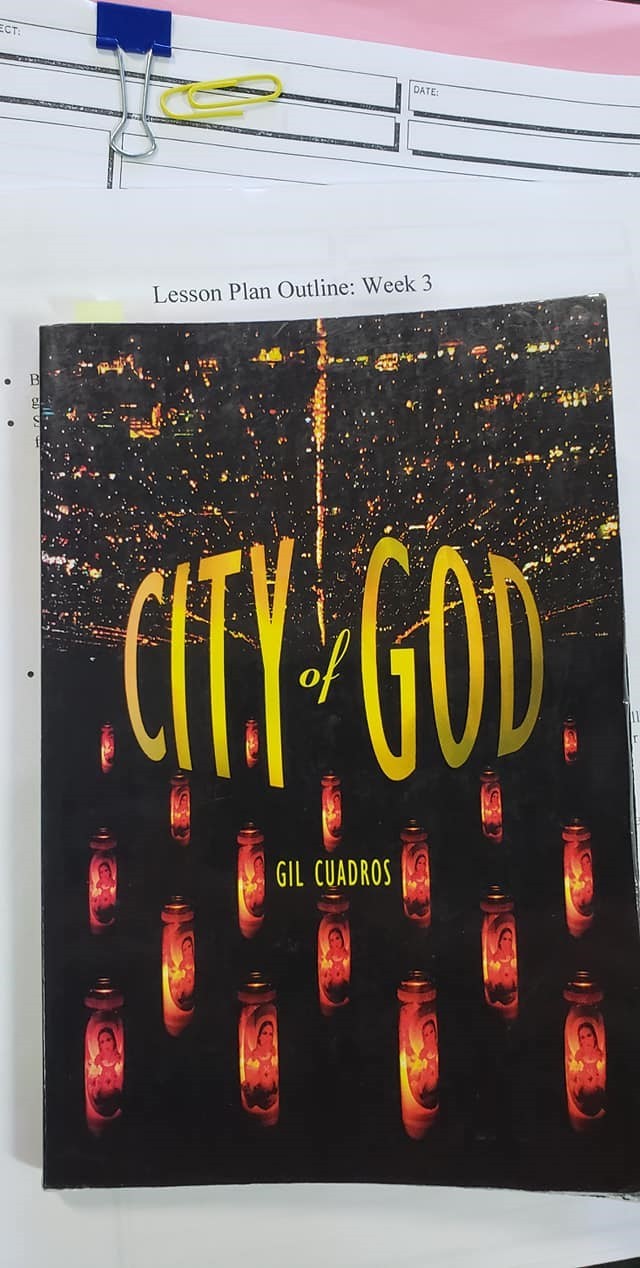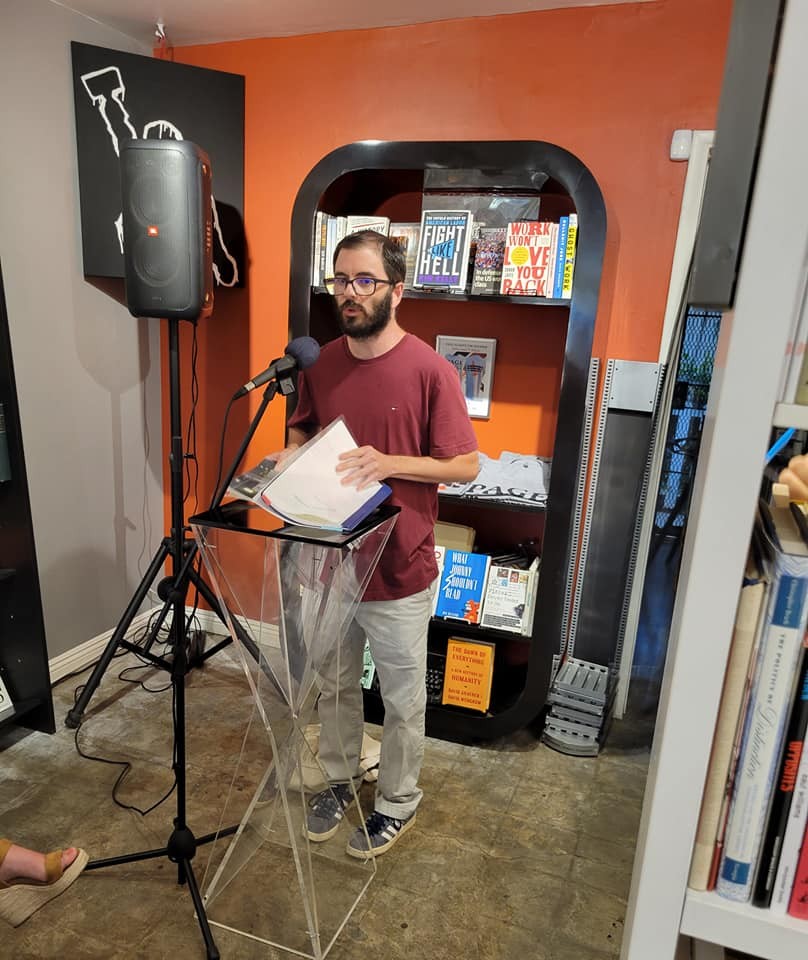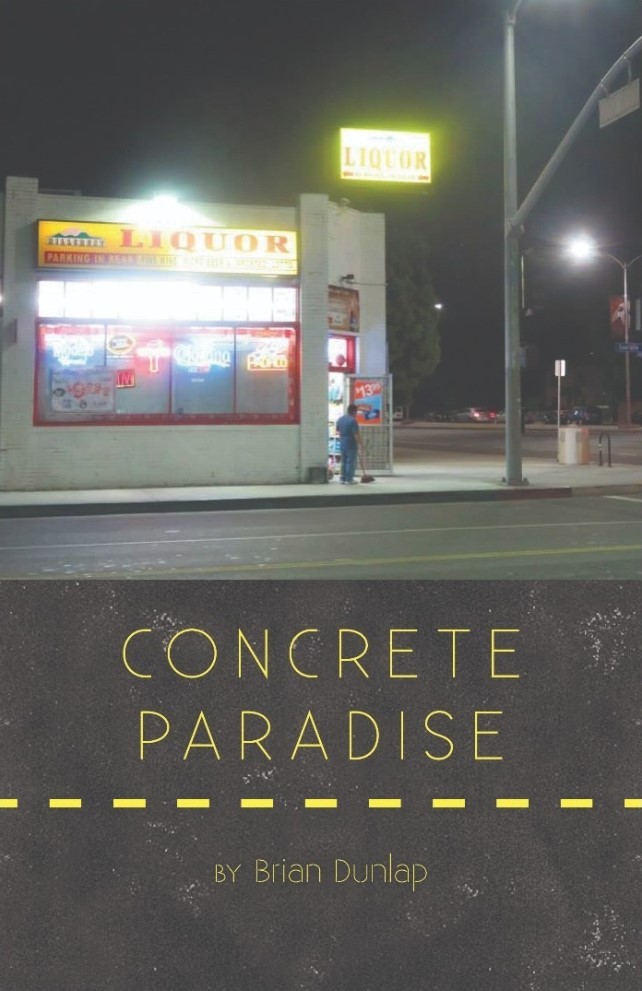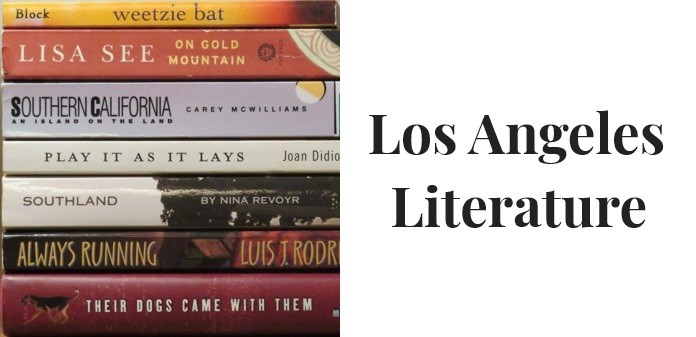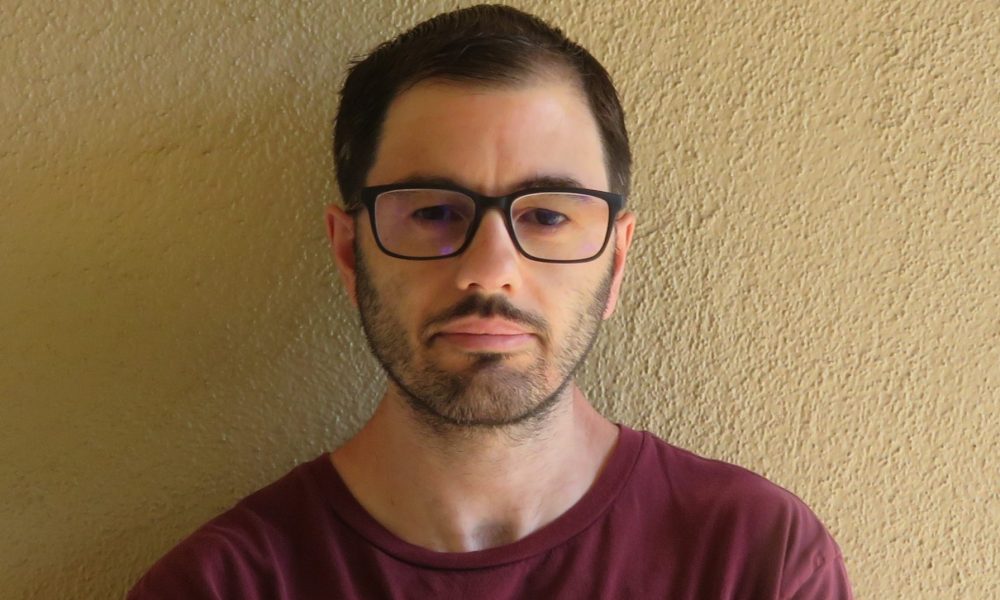

Today we’d like to introduce you to Brian Dunlap.
Hi Brian, thanks for sharing your story with us. To start, maybe you can tell our readers some of your backstory.
I’ve always enjoyed writing. I remember as early as kindergarten, I would write often. Our teacher had us write in journals to practice our writing and I wrote so much that school year that I filled three journals full of my handwriting. It was incredibly simple writing. I wrote lists of what I liked, questions to the teacher, like “Have you been to” such and such a place?
In third grade, I remember taking a hand full of blank sheets of printing paper, folding it in half, stapling it together near the spine and calling everything I wrote between the covers as my novel. From as early as I can remember, I wanted to write novels. But this is the first time I remember attempting to write one. I was eight at the time. And my love of writing fiction, specifically novels, grew from there, as I began to write so many bad novels through the years that I never got anywhere near finishing. I’d lose interest or not like how I was writing the narrative since I had a new idea that interested me.
However, it was when I was in fifth grade, on the computer in the back of the class, working on an assignment, that I said to myself that I wanted to be a writer. From then on, writing was my goal, though I only thought about it in terms of writing novels.
My parents are both big readers, so growing up, they instilled in me a love for literature. They always made sure I had a book to read and I was always in the middle of one book or another. It was in the fifth grade, at the first Los Angeles Times Festival of Books, when it was held at UCLA, that I discovered one of my favorite authors, who would become a key influence for me in my writing. It was Los Ángeles writer Francesca Lia Block, who I heard speak there on a panel. She writes these punk, gothic, realistic fairytales about teens growing up in Los Ángeles, around Hollywood, where Block had grown up. It was the first time I had seen my city reflected back to me and I fell in love. These descriptions of places I’d been to or knew about, even though I grew up on the Westside in Mar Vista, next to Venice.
Then in high school, I was introduced to Susan Straight from my mother who had read a novel of hers in a book club she’d been in, another writer who wrote all about place, although strictly through realism. Her novels and short stories and essays tell stories of her hometown of Riverside and the rest of the Inland Empire from such a deep place of honest love for that region and the people who live there; they’re like love letters. Plus, after grad school Straight had returned to live in Riverside because she wanted to live nowhere else. She had that deep connection to that place. Her writing was another example of place-based writing and through it, I learned the importance of writing about the place you’re from, to push back against the stereotypes that people have about that place, to write about the issues and realities of that place openly and honestly.
This whole time all I wanted to do was write novels.
When I attended UC Riverside for undergrad and Fresno State for graduate school, I majored in Creative Writing with an emphasis on fiction. I could care less about poetry. The way poetry is traditionally taught in school turned me off of the genre. I thought poetry was all rules and metaphors I struggled to understand, written on subjects that had no relevance to me and felt archaic because what little poetry I was exposed to was the traditional classics.
Anyway, as I grew older, I realized the literature of place was the type of literature I found most important and powerful. And I realized, once I got to UC Riverside and met people from The Bay who’d argue that The Bay was better than L.Á., just how much I loved my hometown because I felt driven to defend it. I realized that’s what I needed to write about.
It was in grad school, when I was looking for writing about L.Á., examples that showed me the different ways to write about the city, that I ran across Mike Sonksen’s journalism about the city’s literary community that, growing up in L.Á. I never knew existed. I couldn’t believe I didn’t know about the community and wanted to learn more and dug into Sonksen’s articles. I wanted to tell people what I was learning, to get people to understand the city better, that L.Á. does have vibrant culture.
Plus, I got to know poets for the first time, specifically poets of color like Cynthia Guardado, who was in the program with me. They were writing from their unique perspectives, from their undertold experiences combining some combination of race/racism, identity, culture, community, love, cultural conventions, family and the political. Subjects much more relevant to the present, my life being born and raised in the most diverse city in the country, creating a fuller picture of who we are.
At the same time, I got into reading more writers of color. More from L.Á., writing about L.Á. City of God by Gil Cuadros, Borderlands/La Frontera by Gloria Anzaldúa and Southland by Nina Revoyr. I got more and more into L.Á. history as well, especially once I graduated, knowing I needed to know the city more intimately to write about it accurately and authentically.
About six months after I graduated in 2013, the idea that eventually became my website, Los Angeles Literature, first came to me. The need for people to know about the writers of the literary community, especially its writers of color who’ve been historically overlooked; the community itself; its history; and how the writers depict the city, as a way for the public to engage with the community, as a way, in addition to my writing, for me to push back against the stereotypes and tropes L.Á. is famous for and to insert people of color more prominently into the city’s narrative as it’s inexcusable, like Hollywood has done for its entire history, to write people of color, writers or otherwise, out of the city’s narrative when they make up the majority of the population.
I did nothing with that idea for a long while, thinking I couldn’t handle going through with it. I’ve always been one who gets overwhelmed easily, especially with my ADHD.
However, this idea kept gnawing at me. I felt, as a white man, that I needed to do more to help combat racism in this country than just write about the intersection of race and place in Los Ángeles and support writers of color. I didn’t want to be the kind of white person that just talks about doing something to combat racism but does nothing about it. Then, in March 2015, I started my site, confronting the fact I either do it now or never.
Originally, Los Angeles Literature had pages dedicated to the lists of all the independent bookstores in Southern California that I could find, all the open mics, all the reading series, books written or set in Los Angeles, writers of the community, local independent presses, literary journals, literary organizations and annual events. Plus, once a week, I’d post a list of weekly literary events for the upcoming week so the public could have a one-stop shop where they could find events to attend. Eventually, I began to write articles about the community to cover its news.
It was during the pandemic that I realized I couldn’t cover the community by myself. Los Angeles Literature had become more of an online publication covering the news and information of the community with articles I’d written about events, publication news, etc., and with posted excerpts of author interviews, book reviews, literary history, etc., about the community, published elsewhere, that I linked back to the original source.
But it wasn’t until last summer that I convinced myself that if I wanted Los Angeles Literature to cover the city’s and region’s literary community starting from the perspective of its writers of color and out into the rest of the community, fully, then I’d have to redesign and relaunch my site as a full online publication covering the Los Ángeles literary community, open to submissions with an emphasis on publishing writers of color and work covering local writers of color. The work would be in the categories of articles, book reviews, interviews, history and literary criticism.
Earlier this year, I finished redesigning Los Angeles Literature and it officially opened for submissions. I encourage everyone to check out the submission guidelines and submit.
I’m sure it wasn’t obstacle-free, but would you say the journey has been fairly smooth so far?
It has not been an easy road. The most prominent reason is due to my ADHD. Its symptoms make it harder to interact with people and manage situations as well as emotions. With emotions I feel more intensely than people without ADHD, as they can get stuck on a particular emotion in a situation and take over. It can be awkwardness, uncomfortableness, embarrassment, anger/frustration, unconfidence, pleasure, etc. For me, at times, it makes it more difficult to get work done as the emotion becomes strong enough to overwhelm me.
Other times, these extra strong, intense emotions affect my stamina as well, as they can be exhausting to experience and manage and take a little extra time to dissipate, which affects my ability to feel that I can handle life (interacting with others, that I’m doing tasks well or in a correct way, worried how I will come off to others, my impatience, etc.). It feels like I’m getting in my way.
All this makes it more difficult to do and finish my writing, go through with my ideas for literary events, the work I need to do for Los Angeles Literature, not to mention how it affects my personal life. My ADHD triggered intense emotions, causes me to accomplish my goals at a much slower pace than I feel it should take. It’s like my struggles revolve around managing my emotions.
In spite of my ADHD, I’ve been able to publish a chapbook, “Concrete Paradise” (Finishing Line Press, 2018), 14 poems exploring the intersection of race and place in Los Ángeles; win a Jeff Marks Memorial Poetry Prize from “December,” judged by former L.Á. Poet Laureate Luis J. Rodriguez read at LitHop Fresno, Beyond Barque, the Sims Library of Poetry, etc. and teaches workshops at the Hammer Museum, 826LA, Culturama at Mt. San Antonio College and elsewhere. Plus, commit to my site that not only covers the L.Á. literary community, its writers of color, etc. but also chronicles the community’s continued history as it unfolds. However, it has not been fast or easy.
As you know, we’re big fans of you and your work. For our readers who might not be as familiar what can you tell them about what you do?
I’m a writer, founder and Editor-in-Chief of Los Angeles Literature, I host one-off literary events from time to time that feature writers of color, from time to time teach writing workshops that range from writing about place/Los Ángeles to generating ideas, etc. Plus, specifically due to my work with Los Angeles Literature and the readings I host, I’ve become known as a great supporter of the local literary community. It’s a community I love—the good people I’ve met and their powerful words and necessary perspectives—how supportive and laid-back, uncompetitive it is unlike some East Coast literary communities I’ve heard about and how we hold space for each other so we can tell our authentic truths that reflects the racial and ethnic diversity of the community (for the most part).
I’m also known for writing about Los Ángeles at the intersection of race and place. I include a lot of Los Ángeles history in my poetry, which is an influence from Mike Sonksen and all his writing (journalism, essays, book reviews, poetry), but specifically his poetry, that always seems to integrate local history into the narratives. I use history in my work to give the reader a deeper understanding of what I’m writing about and to push back against the stereotype that L.Á. doesn’t have history.
Plus, I write about race, racism and people of color because how can one authentically capture SoCal without doing so? The region is close to two-thirds white. As a white man, it’s my obligation to explore, to understand, to come to terms with this country’s legacy of systemic racism, this history of it and how that history still impacts and continues to shape the country today and what I can do to combat it. It’s my people’s shameful legacy that I, and White America, need to reckon with. Since I love Los Ángeles and know it better than anywhere else in the world, I explore race through the city and region.
How do you define success?
Defining success is difficult for me because I always feel like I am in the middle of a project, a piece of writing, working on Los Angeles Literature, etc. and that I’m never completing anything. I do see myself as being productive, that many days I’ve gotten a lot of good work done. But I guess success for me is continuing to do the work I love: writing about Los Ángeles at the intersection of race and place, continuing to work on Los Angeles Literature as I continue to build it into the best publication covering the Greater Los Ángeles literary community that I can continue to build community by hosting readings in the community that highlight its talented writers of color, teaching my workshops to get others to tell their important and necessary truths. As I do that, I try to remind myself success will come, eventually. The frustrating part is that I don’t know—people don’t know—when success will come to them, and many move on to other things before they achieve that success. Sometimes the success comes fast, sometimes it takes what feels like way too long, and sometimes it takes anywhere in between. I just stick with what I am working on, make sure I do it to the best of my abilities, then I’ll achieve the goals and outcomes I was going for.
Contact Info:
- Website: losangelesliterature.com and briansdunlap.com
- Instagram: @briansdunlap
- Facebook: https://www.facebook.com/brian.dunlap2
- Other: Author Site: https://briansdunlap.com
